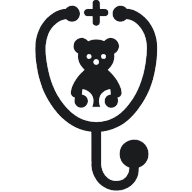Childhood is a time of exploration, learning, and unfortunately, occasional illnesses. As parents, it's crucial to understand how to manage these common childhood illnesses effectively. This comprehensive guide will provide you with the necessary knowledge to tackle these health challenges. We'll explore the symptoms, treatments, and preventive measures for common childhood illnesses.
Understanding Childhood Illnesses
Childhood illnesses are an inevitable part of growing up. They can range from mild conditions like common colds to more severe diseases like pneumonia. Understanding these illnesses is the first step towards effective treatment.
Children's immune systems are still developing, making them more susceptible to infections. Common symptoms include fever, cough, runny nose, and fatigue. However, these symptoms can vary depending on the specific illness.
When your child falls ill, it's essential to monitor their symptoms closely. This will help you identify the illness and seek appropriate treatment. Remember, early detection and treatment can prevent complications and speed up recovery.
The Common Cold: Symptoms and Treatment
The common cold is one of the most frequent illnesses in children. It's characterized by a runny nose, sneezing, mild fever, and a general feeling of being unwell.
While there's no cure for the common cold, you can manage the symptoms to make your child more comfortable. Over-the-counter cold remedies can help alleviate symptoms. However, always consult a healthcare professional before giving your child any medication.
Hydration is crucial during this time. Encourage your child to drink plenty of fluids and rest. With proper care, most children recover from a common cold within a week.
Treating Ear Infections in Children
Ear infections are another common childhood illness. They often occur when a cold, throat infection, or allergy causes fluid to become trapped in the middle ear.
Symptoms of an ear infection include ear pain, difficulty hearing, and sometimes fever. If your child exhibits these symptoms, it's important to seek medical attention promptly.
Treatment for ear infections usually involves antibiotics. Pain relievers can also help manage the discomfort. Remember, it's essential to complete the full course of antibiotics, even if your child's symptoms improve.
Managing Stomach Viruses
Stomach viruses, also known as gastroenteritis, are common in children. Symptoms include vomiting, diarrhea, stomach pain, and fever.
Hydration is key in managing stomach viruses. Dehydration can occur quickly in children, so ensure your child drinks plenty of fluids. In severe cases, hospitalization may be necessary for intravenous fluids.
While stomach viruses can be uncomfortable, most children recover with rest and proper hydration. Consult a healthcare professional if symptoms persist or worsen.
Dealing with Childhood Asthma
Asthma is a chronic condition that affects many children. It causes the airways in the lungs to become inflamed and narrow, leading to breathing difficulties.
Symptoms of asthma include wheezing, shortness of breath, and frequent coughing. If your child exhibits these symptoms, seek medical attention immediately.
Treatment for asthma involves long-term management strategies and medication. Your healthcare provider can help develop an asthma action plan tailored to your child's needs.
Treating Skin Conditions in Children
Skin conditions, such as eczema and psoriasis, are common in children. These conditions cause the skin to become red, itchy, and inflamed.
Treatment for skin conditions often involves topical creams and ointments. In severe cases, prescription medication may be necessary. It's also important to keep your child's skin moisturized and avoid triggers that can worsen the condition.
Remember, while these conditions can be uncomfortable, they can be managed with proper care and treatment.
Navigating Childhood Illnesses: A Final Word
Dealing with childhood illnesses can be challenging. However, with knowledge and understanding, you can navigate these health challenges effectively. Remember, early detection and prompt treatment are key in managing these illnesses. Always consult a healthcare professional if you're unsure or if your child's symptoms persist. Here's to healthy, happy children!

